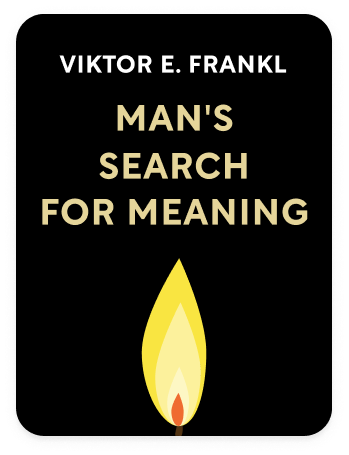

This article is an excerpt from the Shortform book guide to "Man's Search For Meaning" by Viktor E. Frankl. Shortform has the world's best summaries and analyses of books you should be reading.
Like this article? Sign up for a free trial here .
What is paradoxical intention in logotherapy? How can you help break cycles of anxiety using paradoxical intention?
Paradoxical intention in logotherapy asks that you consciously confront the things you’re afraid of and that give you anxiety.
Read more about paradoxical intention in logotherapy and how it can help you overcome anxiety.
Using Paradoxical Intention: Logotherapy Combats Anxiety
Feeling like life is meaningless, thinking our choices have already been determined for us, and worrying about death can all cause feelings of anxiety over the meaning of our lives. Anxiety is a difficult feeling to break out of–by its very nature, anxiety is a feedback loop that keeps us fixated on the very thing that’s causing us anxiety. What can we do to face it down and help us break the cycle?
Frankl mentions two specific forms of anxiety, and logotherapy has two corresponding techniques to help you combat these forms.
Hyper-intention anxiety is intense fixation on either yourself or something you want, which usually prevents you from achieving your desired goal precisely because you’re trying to force it to happen.
- For instance, when you wake up in the middle of the night and try to force yourself to go back to sleep, very often the hyper-intention to sleep causes you to stay up longer.
Anticipatory anxiety is where you fear something bad happening, and the fear itself causes the very thing to happen.
- For instance, someone who’s self-conscious about sweating too much when they’re nervous will get nervous, start to sweat, then get anxious about sweating too much, which increases their stress level and causes them to sweat more.
Though these are 2 different types of anxiety, they usually result in the same outcome, and it’s rarely a good outcome.
- An example from the book: the more a person tries to orgasm during sex, the less likely they are to actually orgasm–but conversely, the more afraid someone is of not orgasming during sex, the more likely their fear will come true. Same result, but different anxieties.
Logotherapy values taking concrete action over philosophizing, and there are two concrete steps you can take to help break these anxiety cycles: dereflection and paradoxical intention in logotherapy.
- Dereflection helps you focus on something bigger than or outside of yourself, which inadvertently helps you achieve your goals. This is one way to respond to hyper-intention.
- The book gives an example of a woman who was having difficulty orgasming during sex with her partner. She’d been sexually abused as a child and had read research about all the sexual problems she was going to have as a survivor, so during sex she kept fixating on herself and waiting for those problems to arise.
- Frankl helped the woman move the attention from herself to an external object–her partner. By focusing on her partner, she took the pressure and hyper-intention off herself and was able to orgasm.
- Viktor Frankl’s Paradoxical intention has you consciously intend to do the thing you’re afraid of. This is one way to respond to anticipatory anxiety.
- A doctor was anxious about how much he sweated. If he thought he was going to sweat, he got so anxious about it that he sweated profusely anyway.
- To break the patient of this cycle, Frankl told the doctor to aim for a paradoxical intention: to sweat as much as possible when he was anxious about sweating. Whenever the doctor felt anxious about perspiring, he flipped the narrative and thought, “If they thought I was sweaty last week, I’m going to sweat at least ten quarts right now!” Of course, when he tried to sweat, he couldn’t do it.
Both dereflection and Viktor Frankl’s paradoxical intention require you to reorient your purpose and look outside yourself, which is directly in keeping with logotherapy’s principles.
Exercise: Combating Anxiety
Use this exercise to help you break out of hyper-intention or anticipatory anxiety.
What’s something in your life that’s causing you anxiety? Describe how that anxiety feels–is it hyper-intention (focusing on yourself or something you want to do) or anticipatory anxiety (worrying that something bad will happen in the future)?
If it’s hyper-intention, try looking at the bigger picture–is there a person you care about who’s involved, or a purpose that’s important that connects to the issue? Find something outside yourself or the thing you want that you could focus on. | If it’s anticipatory anxiety, form your own paradoxical intention and write it here.

———End of Preview———
Like what you just read? Read the rest of the world's best book summary and analysis of Viktor E. Frankl's "Man's Search For Meaning" at Shortform .
Here's what you'll find in our full Man's Search For Meaning summary :
- How Viktor Frankl survived four Nazi death camps
- Frankl's life-changing advice for coping with suffering
- Why focusing on what you enjoy isn't enough to make your life meaningful






